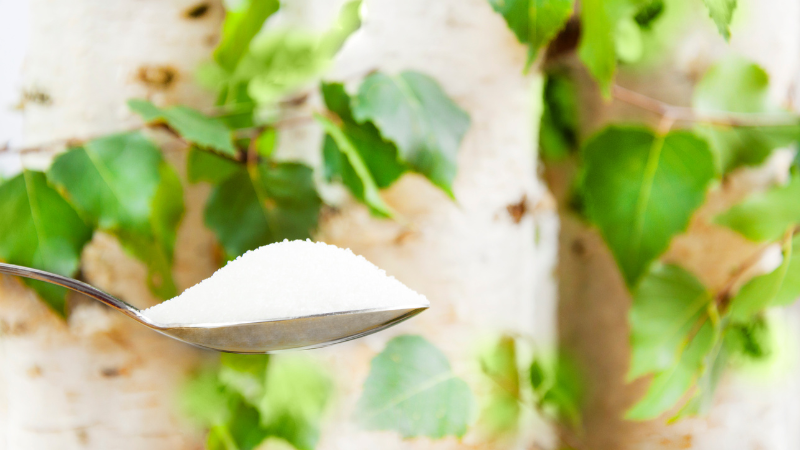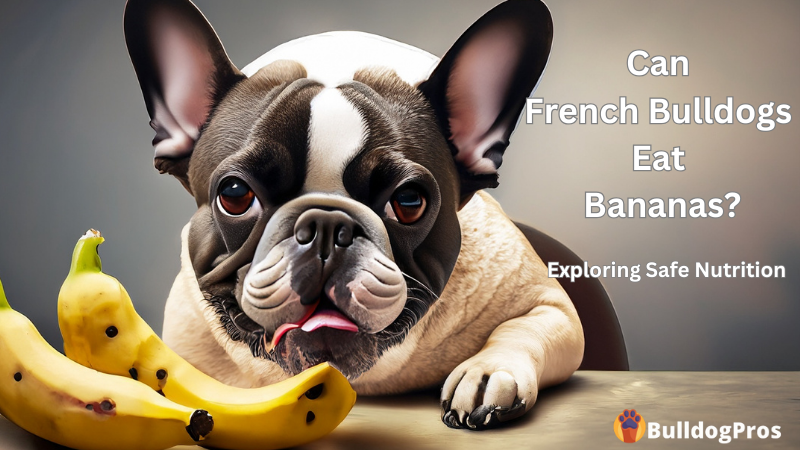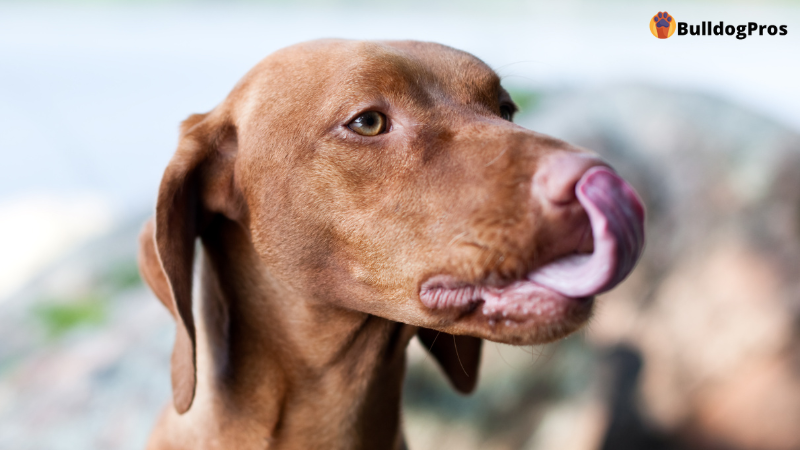Peanut butter is one of the most commonly consumed foods in the world, but it’s also one of the most controversial. Have you been asking yourself, Is peanut butter safe for dogs?
The debate rages on, and plenty of people out there support peanut butter as being safe for dogs, while others argue vehemently against it. In this blog post, we’ll be looking at both sides of the argument to help you decide your own verdict. So read on to learn all you need to know about peanut butter safety for dogs!
The Division
The debate around peanut butter and dogs is ongoing. Some people believe that it’s unsafe for dogs, while others swear by its benefits.
As peanut butter is such a popular treat, and many dog owners give their dogs peanut butter from time to time, it’s important to be aware of a few peanut butter facts, including possible health risks.
Video: Is Peanut Butter Safe For Dogs?
The Argument for Peanut Butter Being Safe for Dogs
Provided it’s consumed in moderation and as part of a healthy diet, some people believe peanut butter is likely safe for dogs.
According to the American Kennel Club (AKC), many peanut butters are safe for dogs to eat, and in moderation, peanut butter can be an excellent source of protein and healthy fats, vitamins B and E, and niacin.
The Argument Against Peanut Butter Being Safe for Dogs
Peanut butter is high in fat, cholesterol, sugar, and some even hydrogenated vegetable oil, which can be harmful to a dog’s health. In some cases, peanut butter can cause gastrointestinal problems and even seizures. Some peanut butter is high in salt, which can be hard on dogs’ kidneys.
- Calories
- Aside from containing unhealthy fats, peanut butter is high in calories which can lead to weight gain.
- Lectins
- Peanut Butter contains lectins. Lectins are proteins that can cause inflammation in the body that can lead to allergic reactions in dogs.
- Rancid Fats
- Roasted peanuts are frequently found in peanut butter. So what’s the issue here? Peanuts are high in natural fats and oils. Both become rancid due to their heat sensitivity when heated to high temperatures.
What Does Xylitol Have To Do With It?

While many peanut butter brands may be harmless to dogs, certain types contain xylitol, an artificial sweetener,
Xylitol is a naturally occurring sugar substitute found in many foods and drinks. You may be familiar with it as an ingredient in sugar free chewing gum and other sugar free products.
Over the years, some peanut butter manufacturers switched to Xylitol in an effort to lower the calories. It has been found safe for people but is highly toxic to dogs.
Too much xylitol can also cause a sudden drop in blood sugar. In addition to low blood sugar, xylitol can cause severe liver damage, pancreatitis, intestinal blockages, seizures, and even death.
There is no antidote for xylitol poisoning in dogs, so treatment focuses on keeping the dog comfortable and saving their life as much as possible.
There are some brands of peanut butter that contain xylitol. So if you are thinking about giving your dog peanut butter, be sure to read the ingredients list and make sure that it is an xylitol free peanut butter product.
Can Dogs Have Nut Allergies?

Some experts believe that all dogs could potentially develop an allergy to peanuts, while others think this is unlikely.
If your dog does have an allergy to peanuts, avoid feeding them all peanut products.
If your dog does eat peanut butter and signs of an allergy start appearing, stop feeding them any peanut butter whatsoever and contact your veterinarian immediately.
In the meantime, keep your peanut butter stash in check and feed them something else instead!
Some alternatives to peanut butter to ask your vet about are other nut butters like almond butter, sunflower seed butter, and cashew butter.
Video: Is Peanut Butter Safe For Dogs? Veterinarian Dr. Lisa Answers
What About Homemade Peanut Butter?

Making homemade peanut butter might be easier than you realize. One of the advantages of making it yourself is you are assured of the ingredients being used.
All you need is just peanuts, optional oil, and a food processor.
The amount of ingredients can be increased/decreased depending on how much peanut butter you want.
Ingredients:
- 1 1/2 cup unsalted, roasted peanuts
- 1 tsp. honey or molasses (optional)
- 1 tsp. or more peanut or safflower oil (optional) Some people substitute coconut oil but be aware it can cause tummy upset.
Instructions:
- Place peanuts and optional products in a food processor and blend.
- You’ll find that the consistency will change as the processing continues. Don’t stop too soon. The final product you want has a creamy consistency. It can take about 3 minutes.
- Refrigerate in an airtight container.
Yields: About 1 cup.
You can also use this recipe to make healthy dog treats or to use on a lick mat.
Other nut butters can also be made at home. Change out peanuts for another nut for a change of pace. Just be aware that there are some nuts that dog’s cannot eat. So be sure to research before making any nut butter to be sure it will be safe for your dog.
Read Next: Licking Mats For Dogs: Essentials You Need To Know
FAQS
What To Look For In Peanut Butter For Dogs?
Not all peanut butters are created equal, so be sure to read the ingredient list on any peanut butter products.
Look for a natural or organic peanut butter without added sugar or the sugar substitute Xylitol, artificial flavors, or colors.
Some brands make peanut butter without added sugars or oils, which is ideal for dogs with diabetes or allergies.
How much peanut butter can I give my dog?
Too much peanut butter in your dog’s diet can cause an imbalance of nutrients. To avoid unbalancing the overall daily diet, no more than 10% of a dog’s daily calories should come from treats/snacks, including peanut butter.
Generally speaking, small doses (less than two tablespoons) every few days should suffice.
It’s vital that the peanut butter doesn’t include Xylitol, which can be deadly to dogs.
What brands of peanut butter are safe for dogs?
Many brands of peanut butter are safe for dogs. The #1 ingredient to avoid is Xylitol.
Also, be aware that some peanut butters are labeled as “natural” and are xylitol-free but are still not recommended due to additives like corn syrup and trans fats.
The best bet when it comes to dogs and peanut butter is to only give peanut butter and treats that are specifically marketed for dogs.
One such brand is Barkbistro.

Popular Posts

Can French Bulldogs Eat Bananas?
Conclusion
Is peanut butter good for dogs? Some people insist that it’s perfectly safe to give our furry friends peanut butter as part of their dog’s diet, while others think it’s dangerous and could lead to health problems down the road.
There is still a lot of research that needs to be conducted before anyone can say with certainty whether or not peanut butter is safe for dogs. So a pet parent is left with the decision of whether or not to feed their dog peanut butter.
After reading through the evidence and arguments, whether creamy peanut butter or crunchy peanut butter, it is generally safe for dogs as long as they are fed in small amounts and doesn’t include harmful ingredients.
As pet parents, the best decision you can make is to consult with your veterinarian before giving your dog peanut butter of any kind. Your veterinarian will be able to provide you with the best advice and will be able to tell you whether or not it is safe for your dog to eat.
The debate over peanut butter safety for dogs continues to rage on, but we hope that this article, Is Peanut Butter Safe For Dogs? has shed some light on the topic and given you some food for thought.
What are your thoughts about giving dogs peanut or other kinds of nut butters? Comment below.


